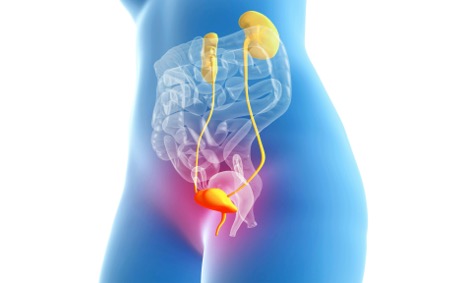Allecra Therapeutics’ Exblifep Approved by FDA for Complicated Urinary Tract Infections
February 29, 2024
Source: drugdu
 477
477
Davy James
The FDA granted Allecra with a five-year marketing exclusivity extension for Exblifep (cefepime/enmetazobactam) through the Generating Antibiotic Incentives Now Act.
 The FDA has approved Allecra Therapeutics’ Exblifep (cefepime/enmetazobactam) for the treatment of complicated urinary tract infections (cUTIs), including the kidney infection pyelonephritis, in patients aged 18 years and older.1 The FDA also granted Allecra with a five-year marketing exclusivity extension for the β-lactam/β-lactamase inhibitor combination through the Generating Antibiotic Incentives Now Act (GAIN Act), which is legislation that incentivizes the development of new anti-infective treatments.
The FDA has approved Allecra Therapeutics’ Exblifep (cefepime/enmetazobactam) for the treatment of complicated urinary tract infections (cUTIs), including the kidney infection pyelonephritis, in patients aged 18 years and older.1 The FDA also granted Allecra with a five-year marketing exclusivity extension for the β-lactam/β-lactamase inhibitor combination through the Generating Antibiotic Incentives Now Act (GAIN Act), which is legislation that incentivizes the development of new anti-infective treatments.
"Receiving FDA approval is a tremendous achievement for Allecra and a testament to the hard work and dedication of a small, yet highly focused team of individuals. I extend my sincere congratulations to my colleagues Omar Lahlou and Patrick Velicitat for their leadership and oversight throughout this whole process,” Iain Buchanan, supervisory board member of Allecra Therapeutics, said in a press release. “As we continue our discussions with strategic partners for product launch in the US, we value the FDA’s positive decision on Exblifep’s ability to address a critical unmet medical need for patients.”1
The efficacy of Exblifep was evaluated in the randomized, controlled, double-blind, global Phase III ALLIUM trial, which compared the treatment with the current standard of care of piperacillin/tazobactam. Exblifep achieved the trial’s primary outcome of clinical cure and microbiological eradication for non-inferiority and superiority compared with piperacillin/tazobactam.
The trial enrolled 1,041 patients, 18 years of age and above, with a clinical diagnosis of cUTI or acute pyelonephritis caused by gram-negative urinary pathogens. Patients were randomly assigned to receive either 2 g cefepime/0.5 g enmetazobactam or 4 g piperacillin/0.5 g tazobactam by two-hour infusion every eight hours for seven days.2
The results showed that 79.1% of patients administered Exblifep achieved the primary outcome vs. 58.9% of those administered piperacillin/tazobactam. Treatment-emergent adverse events were observed in 50.0% of patients administered Exblifep compared with 44.0% with piperacillin/tazobactam.
“Among patients with complicated UTI or acute pyelonephritis caused by gram-negative pathogens, [Exblifep], compared with piperacillin/tazobactam, met criteria for noninferiority as well as superiority with respect to the primary outcome of clinical cure and microbiological eradication,” the study authors wrote. “Further research is needed to determine the potential role for [Exblifep] in the treatment of complicated UTI and pyelonephritis.”2
According to the study investigators, increasing resistance rates have reduced the clinical utility of commonly used UTI treatments, including aminoglycosides, fluoroquinolones, and β-lactams.With rates of extended-spectrum β-lactamases on the rise, the investigators noted that the use of carbapenems for the treatment of these infections has increased resistance, which emphasizes the importance of developing new treatments.
“Antimicrobial resistance mediated by ESBLs is a critical clinical challenge and there is a substantial need for novel antibiotics that enable us to effectively treat resistant infections,” said lead study author Keith Kaye MD, MPH, chief, Division of Allergy, Immunology and Infectious Diseases at the Robert Wood Johnson Medical School (Rutgers University), in a press release. “[Exblifep] has shown improved efficacy compared to a standard of care treatment with a good safety profile. It has the potential to become a replacement for piperacillin/tazobactam and an alternative to the use of carbapenems.”
Read more on
- The first subject has been dosed in the Phase I clinical trial of Yuandong Bio’s EP-0210 monoclonal antibody injection. February 10, 2026
- Clinical trial of recombinant herpes zoster ZFA01 adjuvant vaccine (CHO cells) approved February 10, 2026
- Heyu Pharmaceuticals’ FGFR4 inhibitor ipagoglottinib has received Fast Track designation from the FDA for the treatment of advanced HCC patients with FGF19 overexpression who have been treated with ICIs and mTKIs. February 10, 2026
- Sanofi’s “Rilzabrutinib” has been recognized as a Breakthrough Therapy in the United States and an Orphan Drug in Japan, and has applied for marketing approval in China. February 10, 2026
- Domestically developed blockbuster ADC approved for new indication February 10, 2026
your submission has already been received.
OK
Subscribe
Please enter a valid Email address!
Submit
The most relevant industry news & insight will be sent to you every two weeks.



